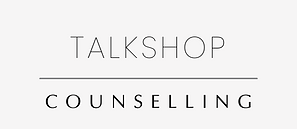What we do: Treatment techniques used in our practices
- Katrina Rose, RTC

- Mar 2, 2023
- 3 min read
Are you curious about the techniques we use in our practices? Here is a quick break down of the different techniques that we most commonly use in our practices.
Somatic Awareness

Our bodies are constantly generating sensational and emotional information. Learning to
listen to and become aware of our body sensations in a given moment can help us get in a healthier relationship with our feelings. Many of us did not learn to listen to our bodies to understand how our thoughts, feelings and sensations are related. In sessions we will explore in real time what we are thinking and feeling, and how that energy is expressed in the body so we can understand and connect more deeply with ourselves. A practice of noticing and understanding our somatic responses gives us more opportunity to support and calm our nervous system to optimize our ability to connect with others and experience joy and peace.
AEDP (Accelerated Experiential Dynamic Psychotherapy)
AEDP is an attachment-based model for helping clients foster self-understanding in the presence of a caring practitioner. The process of AEDP focuses in real time how thoughts and feelings arise in session and allows clients to track and explore difficult emotional territory. This gentle tracking process helps us move through and transform old defenses into new and healthier relational experiences.
Emotionally Focused Couples Therapy (EFT)

EFT is an attachment-based modality that helps couples understand the dynamics of how negative emotional patterns arise and are perpetuated in relationships. EFT allows each person in a couple to explore their own difficulties and defenses and understand how these old defenses show up in a pattern of reactivity. In sessions and we learn to feel safe enough to reveal ourselves in vulnerable communications, which helps each partner foster compassion for self and other. New, healthy patterns can emerge. This spirit of mutual care and compassion is rich territory for deeper love and intimacy.
Cognitive Behavioural Therapy
Cognitive behavioral therapy is an evidence-based approach to examining thoughts and beliefs, and examines how we behave as we experience those. We begin to name those automatic negative thoughts (ANTS) that have become intrusive, and apply a systematic approach of mindful awareness as the thoughts arise; with practice and support these beliefs lose their power, leaving room for choice, goal-directed action and creativity.
Client-centred Therapy
As a client-centred therapist we aim to ‘meet you where you are at’, that is, build rapport with you with genuine caring, acceptance and compassion. Client-centred therapy allows you to experience a safe environment of unconditional connection and examine where you experience congruency and incongruency in relationship, and helps build awareness about what gets in the way of experiencing authentic integrity with ourselves and in relationship.
Transpersonal Therapy

Transpersonal therapy invites the client to consider him or herself in context of greater connection, whether in terms of communal, global or spiritual relationship. Transpersonal therapy helps place anxiety in terms of separation from our true nature, and is a process of active encouragement to help us view our world through lenses of love and connection.
Family Systems Therapy
The Bowen model of family systems helps us see how the anxiety present in our larger family system affects us our thoughts, decisions and behaviours, and helps us take a more objective and compassionate approach to our families and ourselves. Family systems therapy helps us recognize and reduce reactivity (our automatic and often undesired responses) and empowers us with new choices for action as we develop curiosity in place of reactivity. We learn to release the pain perpetuated within the family, and take a compassionate view of our family ‘story’ to help bring greater love and acceptance to our current relationships.
Attachment Model
We form most of our beliefs about ourselves and the world in childhood as we experience degrees of secure attachment to our caregivers; ruptures in attachment often catalyze unhealthy beliefs, and we must revisit these old thought/feelings as they arise in the moment to examine how they are serving us. We employ Gestalt techniques to help clarify and even exaggerate the uncomfortable feelings as they arise in session; with the client’s permission we move through a guided process of feeling the feelings, naming the unhealthy beliefs about self that too often ‘drive the bus’ of our behaviour, and supporting the client to make their own positive choices, using their own positive language to literally change their mind about who they are in this world. The client experiences this with me directly in the moment, and in the case of couples counselling, with their partner as well, opening doors to deeper intimacy and mutual acceptance.
.png)

Comments